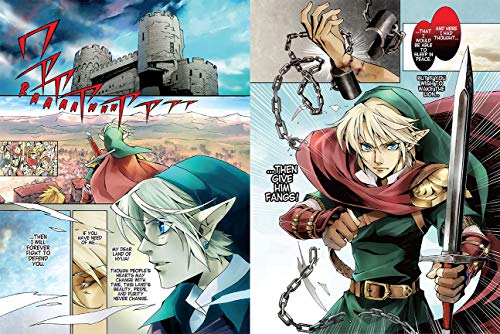Just like Super Mario Bros. before it, the near immediate success of The Legend of Zelda practically guaranteed a wave of franchising opportunities following the game’s release. Thanks to the success of Mario and Zelda, the NES quickly rose to become one of the most in-demand toys on the market, so of course others tried their hand at getting in on the ground floor with adaptations via strategic partnerships with Nintendo. History quickly showed that The Legend of Zelda was a much more closely guarded property by Nintendo than Super Mario Bros., with the number of different adaptations across various forms of media paling in comparison to Nintendo’s iconic Italian plumber.
Still, there are some interesting adaptations of Link and his adventures across Hyrule, including some that are nearly completely forgotten to the sands of time. Most Zelda fans don’t realize that there’s a board game adaptation from the late 1980s or an animated series that ran for one season shortly after the original game’s release, but they’re just as much a part of the franchise’s history as the games themselves. While it may have taken some time for other creators to sufficiently capture the magic inherent in The Legend of Zelda, the latest manga adaptations adhere closely to the lore and spirit of their source material.
The Legend of Zelda Board Game (1988)
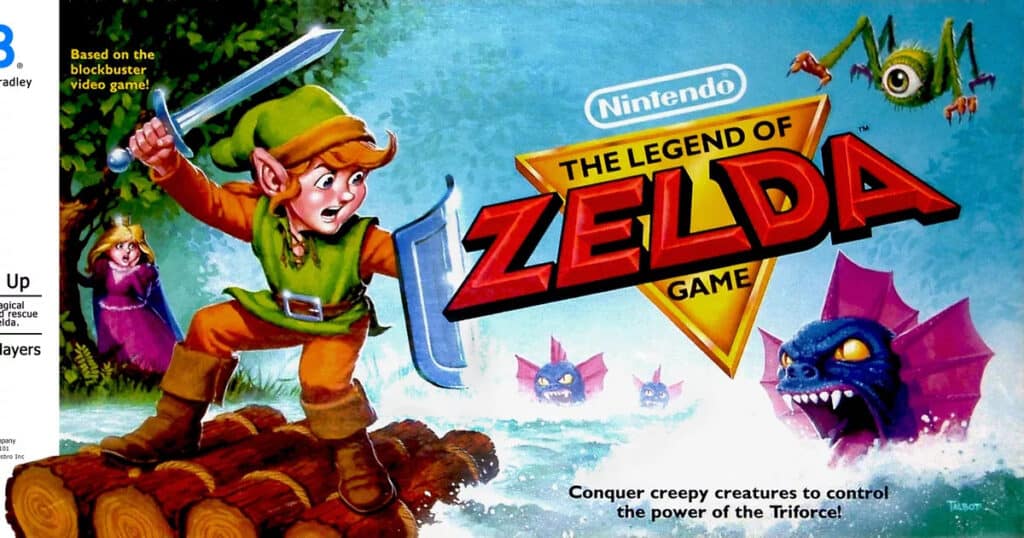
Arriving on shelves just a year after The Legend of Zelda‘s release in the West is the board game adaptation from Milton Bradley. A standard “roll and move” board game, Milton Bradley’s Legend of Zelda sees players assume the role of Link as he travels through 6 different “worlds”, each of which resemble either a biome from the Hyrule map of the original NES game or one of its dungeons. Each player has three heart chips and an attack die to determine success in fighting monsters on tiles, each of which flip over at the beginning of every turn. If the number of swords (which rolling the attack die determines) is greater than the monster’s health, players defeat the creature without losing hearts. The player with the most hearts at the end of the game wins.
The Legend of Zelda Animated Series (1989)
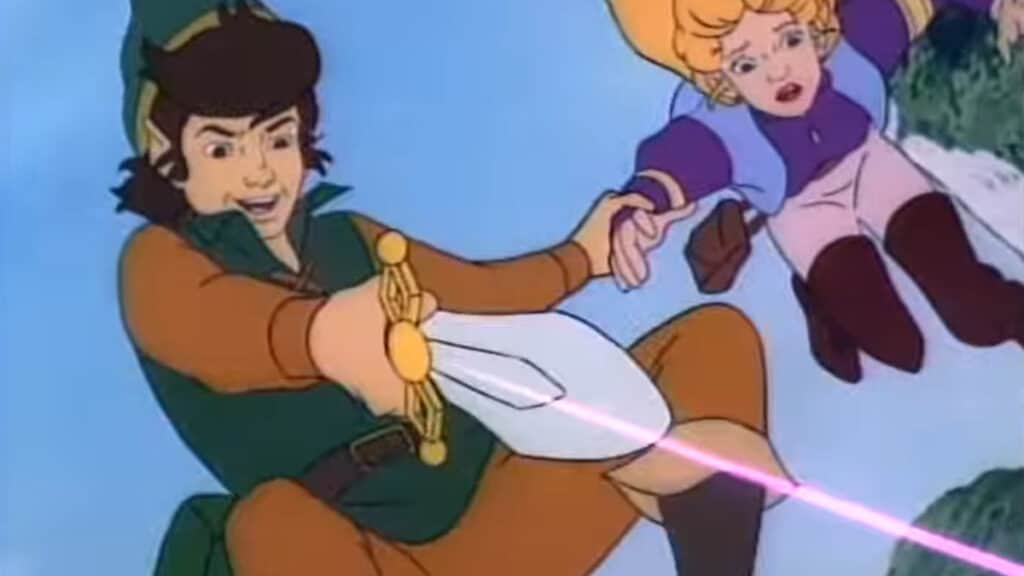
The first (and, currently, only) on-screen adaptation of The Legend of Zelda is the animated series from 1989. Airing for just one season and following the events of the 1987 original, the animated series shows Link and Zelda across a series of adventures as they protect the Triforce of Wisdom from falling into the hands of Ganon. Despite not being entirely faithful to the source material, The Legend of Zelda does pull several sound effects and character designs directly from the NES game. That said, the show adopts a much more silly and lighthearted tone than the sense of adventure and duty that the game imparts on players, and the short airing period of the show suggests that the series never caught on with fans for one reason or another.
Legend of Zelda Comics (1990)
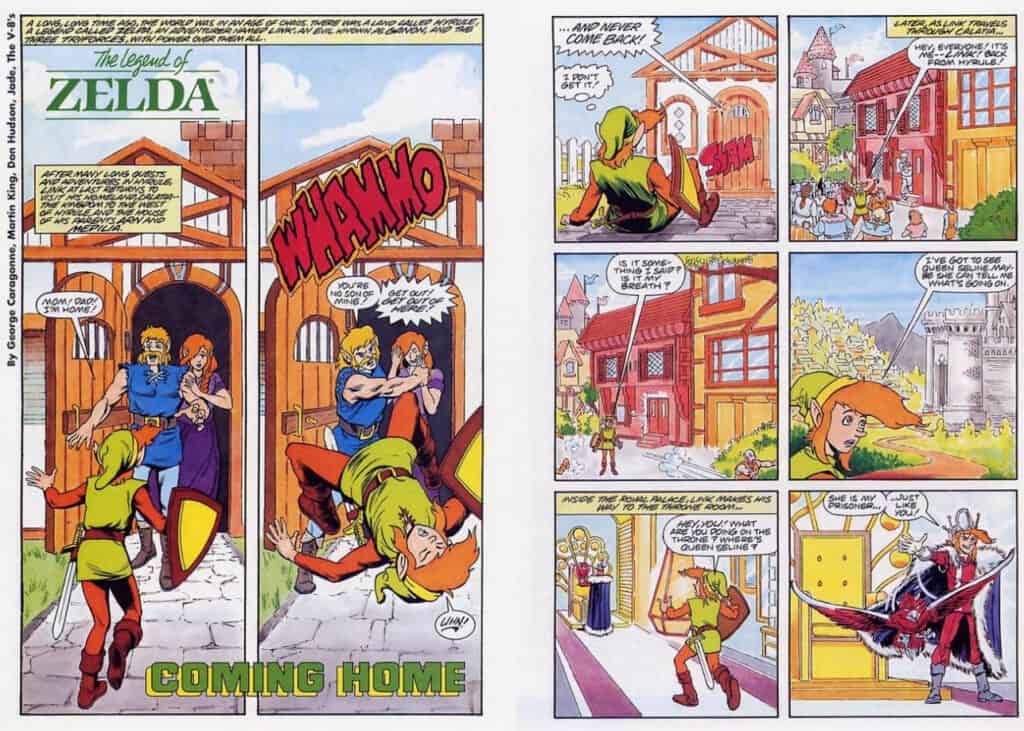
After serving as Editor-In-Chief of Marvel Comics for several years, Jim Shooter founded his own publishing brand with Valiant Comics, whose 1990 comics published under the Nintendo Comics System label included a Legend of Zelda series. Like the cartoon adaptation from the previous year, the Zelda comics take quite a few creative liberties when it comes to adapting the source material of the games. One upside to the Nintendo Comics System issues of Legend of Zelda is that they cover both the events of The Legend of Zelda and Zelda II: The Adventure of Link across their publication run, giving fans one of the only existing adaptations of the narrative of the second Zelda game. However, like the animated series before it, the comics fail to truly capture the tone and themes present in the games, leading to mixed results in their success.
The Legend of Zelda: A Link to the Past by Shotaro Ishinomori (1992)
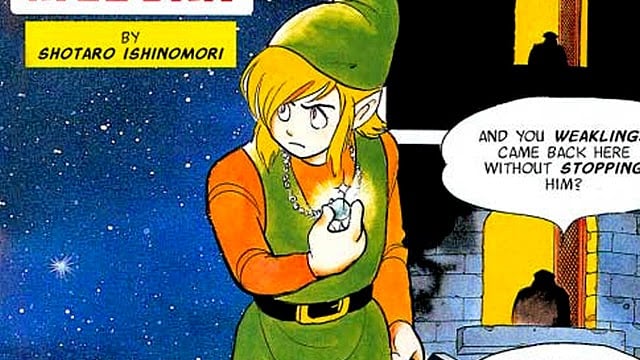
Following the initial misguided attempts to capture the magic that helped make Super Mario Bros. and The Legend of Zelda household names in other formats, the first truly successful adaptation of The Legend of Zelda comes to us courtesy of the incredible manga adaptation of the 1991 SNES classic A Link to the Past. Initially arriving monthly in issues of Nintendo Power between January and December, 1992, the entire Link to the Past manga adaptation was eventually collected and published in a trade paperback by Viz Media in 2015. Featuring the talents and creative direction of legendary manga artist Shotaro Ishinomori, this comic semi-faithfully adapts the story of A Link to the Past into a brilliantly illustrated comic, aggrandizing several of the in-game events from its SNES inspiration.
The Legend of Zelda Manga by Ataru Cagiva (1994-1995)
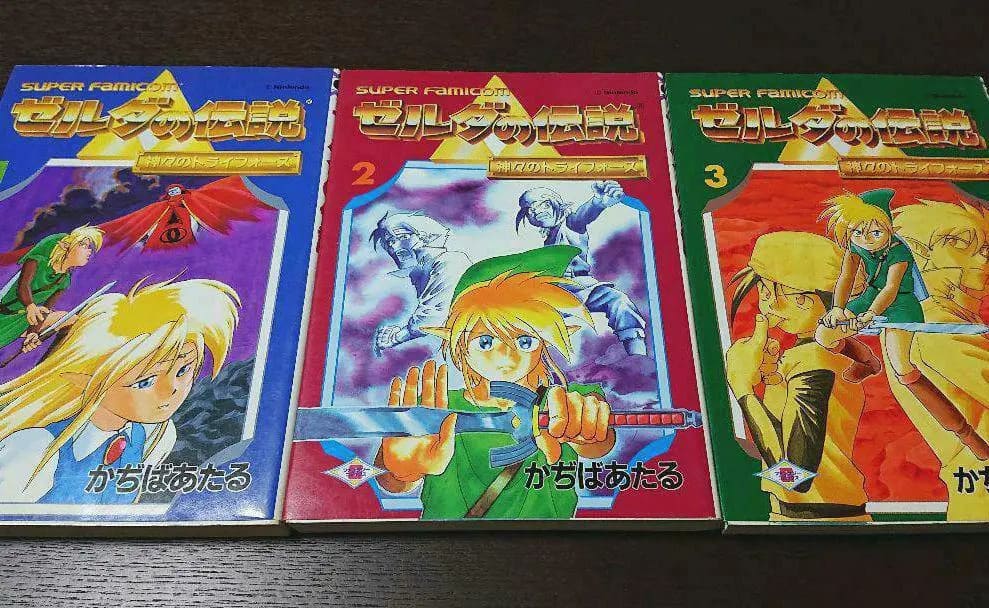
The next series of adaptations of The Legend of Zelda to arrive are the series of manga by Ataru Cagiva, publishing between 1994 and 1995. Although these issues still do not have an official English translation, many fans consider them to be the definitive retelling of the events of A Link to the Past, even going so far as to compare them more favorably to the legendary adaptation from Ishinomori. Considering just the sheer volume of issues alone, Cagiva has much more real estate to flesh out the characters and conflict of the game into a beautifully drawn and well-written manga adaptation. Additionally, Cagiva’s character designs and depictions of action scenes are much more in-line with contemporary manga, giving his adaptation a decidedly more modern feel than Ishinomori’s.
The Legend of Zelda Manga by Akira Himekawa (1999-Ongoing)
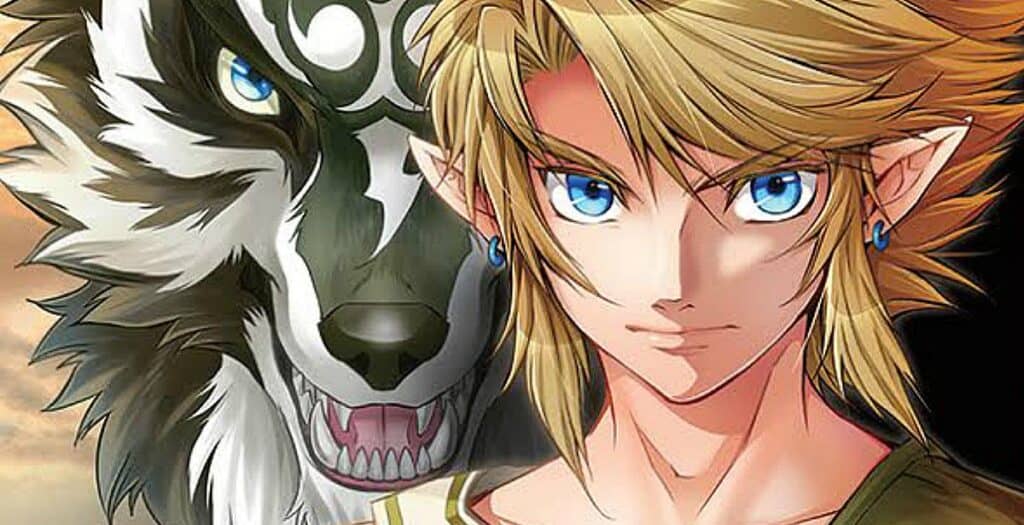
The most recent, and perhaps most successful, The Legend of Zelda adaptation is that of the manga series by Akira Himekawa. Himekawa’s manga adaptations of the Zelda games date back as far as 1999 and the latest, a massive retelling of the events of Twilight Princess, just completed its long run in April of 2023. Throughout Himekawa’s tenure adapting The Legend of Zelda series into the medium of manga, he has written and drawn series that cover the events of A Link to the Past, Ocarina of Time, The Minish Cap, and many other series titles. With Twilight Princess ending earlier this year, it’s possible that Himekawa will continue adapting the games into manga format, with the prevailing candidate for a new manga adaptation being the massively successful The Legend of Zelda: Breath of the Wild.
